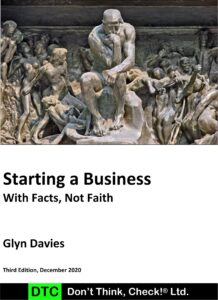Have you ever been impressed by a critical evaluation of a topic or a person? How about a negative critical evaluation? I have, and I was so affected. And I have also been with people who are universally critical; they were hard work, to the point where it was almost as if the will to live was, as with Harry Potter and the Dementors, being literally sucked out of my body – but that’s a story for a different day.
This summary won’t provide any solutions, only some insights – the topic of the perceptions of negative evaluators is too vast and the contexts too varied to imagine that we can do more than dip a toe into this particularly deep ocean of complexity.
In 1983 Teresa M. Amabile’s paper titled Brilliant but Cruel: Perceptions of Negative Evaluators was published. The paper was modest in its scope; it sought to examine the hypothesis “that negative evaluators of intellectual products will be perceived as more intelligent than positive evaluators.” It is not immediately obvious that there should or would be a difference in how positive and negative evaluators are perceived. It is tempting to assume that the perception of the evaluator should be based on the content of their evaluation, not on whether they manifest a negative or positive stance.
In Amabile’s study, the participants rated two almost identical evaluations of a literary work; one evaluation had a negative stance, the other a positive stance. The quote “only pessimism sounds profound, optimism sounds superficial” is a nice and simple(istic) summary of the study. Amabile confirmed the hypothesis by finding that negative evaluators where not only perceived as more intelligent, they were also believed to be more competent and have more (literary) expertise than positive reviewers. In contrast however, positive reviewers were seen as more kind, fair, likeable, and open-minded in comparison. It must be pointed out however, that as with many topics, context is important.
Other studies have found that when evaluating (say) politicians (competing subjects) – mixed positive and negative evaluators were perceived as more knowledgeable than more uniformly positive or negative evaluators. We can speculate that someone who is uniformly positive in evaluating various politicians (or other competitors) might be perceived as naïve (even politically biased and therefore discredited), since politicians have different views, affiliations, and abilities. However, when evaluating “cafeteria workers, movies, cities, and college courses” (non-competing subjects) – people giving the more positive evaluations were perceived as most knowledgeable. With these cases we could speculate that such evaluators are perceived as worldly and experienced – that “someone who likes many things must be familiar with many things.” Another context is when a person is the subject of the negative evaluation; the subject will likely view the evaluator negatively. However, if it is a third party that is being evaluated, then the evaluator will likely be viewed as more intelligent, though less likeable than a positive evaluator. Finally, people who consistently make negative evaluations may be seen as narrow-minded or of limited intellect, whereas people who selectively make negative evaluations might in contrast be perceived as having deep and well-reasoned insight, especially if their evaluations are more substantial and more elaborate than mere like or dislike statements.
So to wrap up, in the context of Amabile’s study, it has been found that when people are asked to evaluate other individuals or their work, people will tend to exhibit a negativity bias when:
- They believe their audience is of higher intellectual status than themselves
- They believe their intellectual position to be insecure
So why do we tend towards negative evaluations and view negative evaluators as more intelligent? Unfortunately only a few incomplete insights are available, as answers vary as widely as the individuals and contexts. With some people, it could be speculated that in an effort to bolster their own intellectual status and position, these individuals, consciously or not, resort to a negativity bias to in effect attempt to raise their own relative status and position with their audience by dragging others down. While in other contexts, such as with competing or non-competing subjects, the positive or negative stance of the evaluator will matter a great deal to how they are ultimately perceived. In the end however, perhaps it is not so important whether or not we possess a definitive understanding of this phenomenon, maybe it is enough that we understand that this phenomenon exists. Understanding the existence of the phenomena may help us to understand why others in certain contexts provide negative evaluations, why we are so enamored when we are exposed to them, and why others may consciously or otherwise use such tactics in politically sensitive contexts to their advantage.
References
Amabile, T. M. (1983). Brilliant but Cruel: Perceptions of Negative Evaluators, Journal of Experimental Social Psychology, 19, 146-156.



